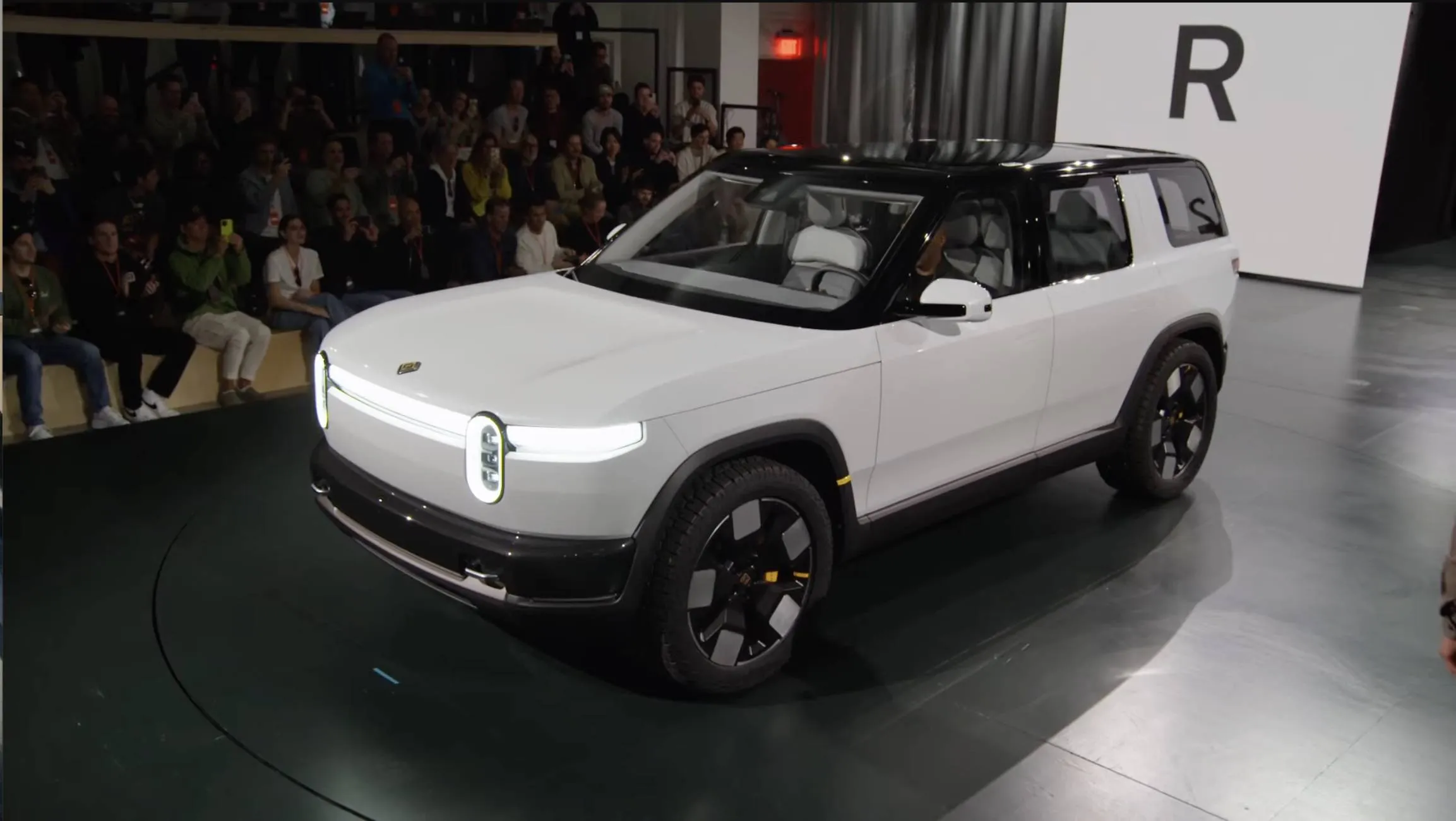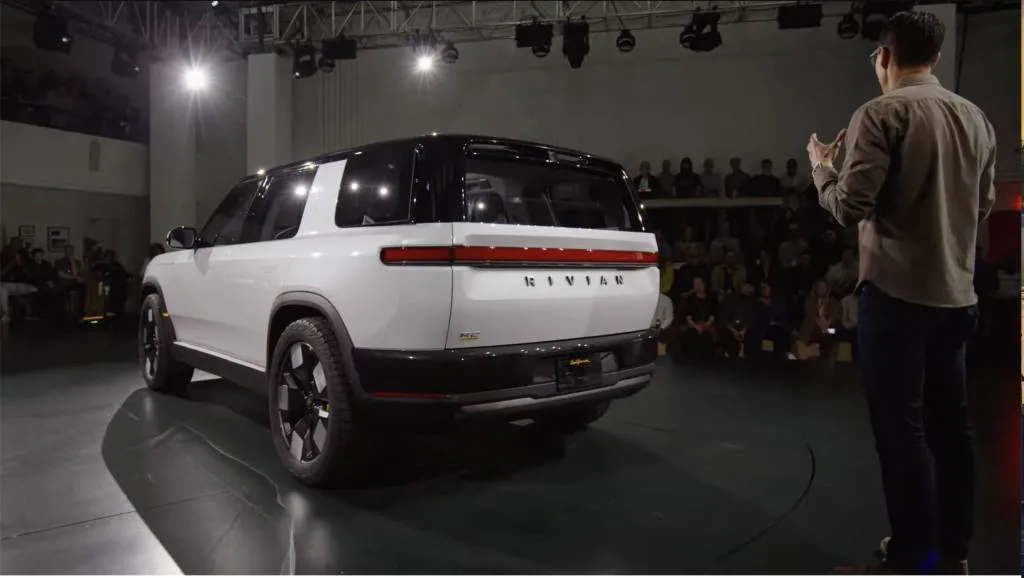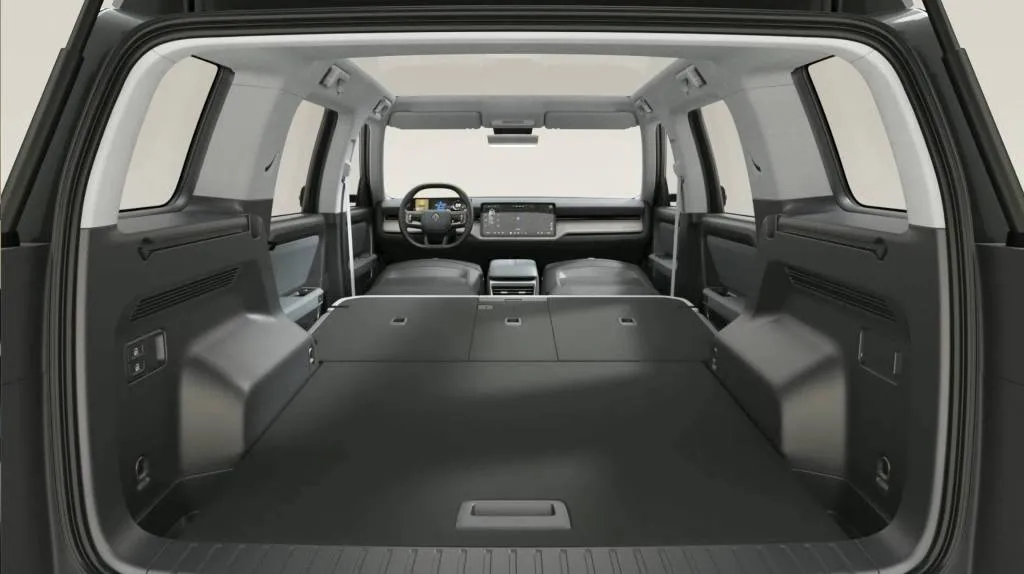

Rivian R2 bows: $45,000, over 300 miles, the future of the SUV?
The Rivian R2 is two years away, but with the debut of an R2 in prototype form on Thursday, it’s clear this electric SUV will arrive with a proposition unlike any EV yet: A boxy silhouette, rugged off-road chops, range topping 300 miles, and a target price effectively below today’s average new-vehicle price, regardless of the fuel.
Rivian is targeting an entry price of $45,000 for the R2, which with potential qualification for the EV tax credit, would mean it would cost less than $40,000 for many drivers.

Rivian R2S
The R2 is 185.6 inches long, 75.0 inches wide, and 66.9 inches tall, which means it takes up about the same parking footprint as the Tesla Model Y but is three inches taller with a very different, boxier form.
By the basic specs, the R2 appears competitive in performance, range, and efficiency versus other electric crossovers that make tradeoffs for a silhouette that’s more aero-informed. Rivian promises a range of more than 300 miles. It will be available with a single rear motor, a dual-motor setup, or a tri-motor powertrain with an electric motor on the front axle and two on the rear. A NACS charge port will allow access both to Tesla Superchargers and Rivian’s own Adventure Network. It’s also targeting 0-60 mph acceleration in less than 3.0 seconds.
On the outside, the R2 looks like a Rivian. That means carrying over much of its appearance—including the brand identity of its distinctive vertical headlights—from the R1S, but sharpening the look a bit by emphasizing the squared-off corners and chamfers that appear to be the state of fashion for SUVs in the mid-2020s.
The R2 has 9.8 inches of ground clearance—far more than any crossover SUVs you might compare it to—and approach and departure angles are exceptionally good, at 25 and 27 degrees, respectively. That hints of off-road ability that could make this EV a solid rival to electric off-roaders also on the way from Jeep. These models are built around a structural battery pack with 4695-format cylindrical cells.

Rivian R2S
If the R2 isn’t game-changing on the outside, it’s inside where the innovation happens. Both the first and second row of seats fold flat, and it has two gloveboxes. The cargo floor slides back to support tailgating and the weight of a couple people.
The R2 rides on a platform that will leverage economies of scale in a way the R1 lineup hasn’t The R2 is sized to allow global market entrance for Rivian, as the R1S and R1T are simply too large for markets such as Europe.
Rivian plans to build up to 400,000 vehicles annually off the R2’s platform out of its upcoming Georgia plant, in addition to the 150,000-vehicle maximum it has at its existing Illinois plant. Initially, though, the R2 will be produced in Rivian’s current plant in Normal, Illinois. The Georgia plant has been put off to conserve the startup’s cash.
At face value, the R2 looks like an attempt to seize a great market opportunity. Family SUVs with a rugged tack, like the Jeep Grand Cherokee or even Ford Explorer, used to sell in the hundreds of thousands annually. With the sales of those models usurped partly by the Model Y and niche crossovers, maybe it’s time for a new family mainstay.
Will the R2 be Rivian’s Model 3 moment? We’ll soon see after today, when reservations are due to open.
Add a comment Cancel reply
Related posts


Electric SUVs: Top 6 Models for Family Trips











